Indonesia Received the First Batch of COVID-19 Vaccines From the COVAX Facility
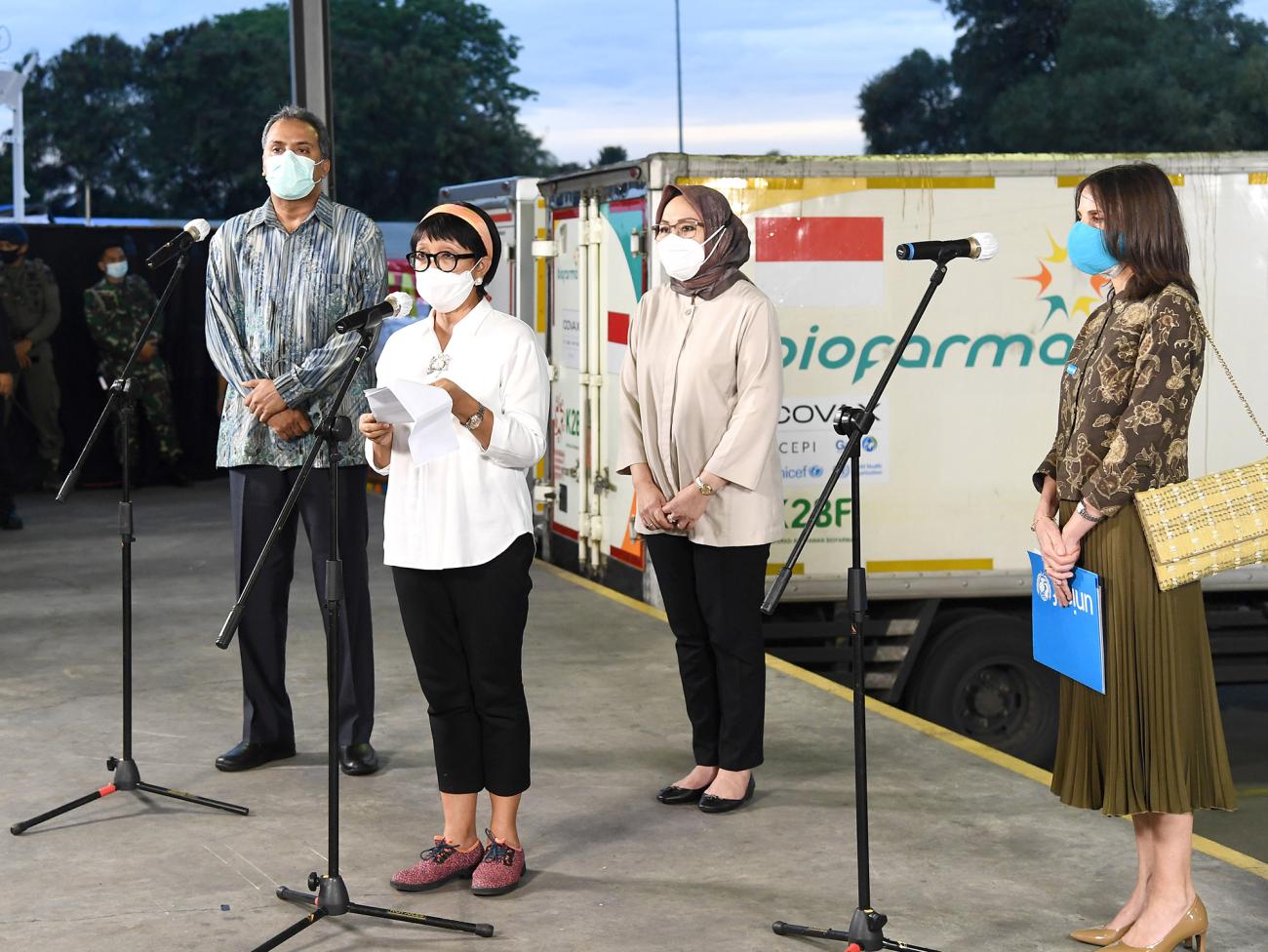
The first batch of COVID‑19 vaccines from the COVAX Facility that arrived in Indonesia is the AstraZeneca vaccine
Yesterday, Indonesia received 1 113 600 doses of COVID‑19 vaccines from the COVAX Facility, the international partnership established to ensure equitable distribution of COVID‑19 vaccines around the world. This first shipment is part of the 11 million doses allocated to Indonesia under the COVAX Facility that will continue to arrive until May 2021.
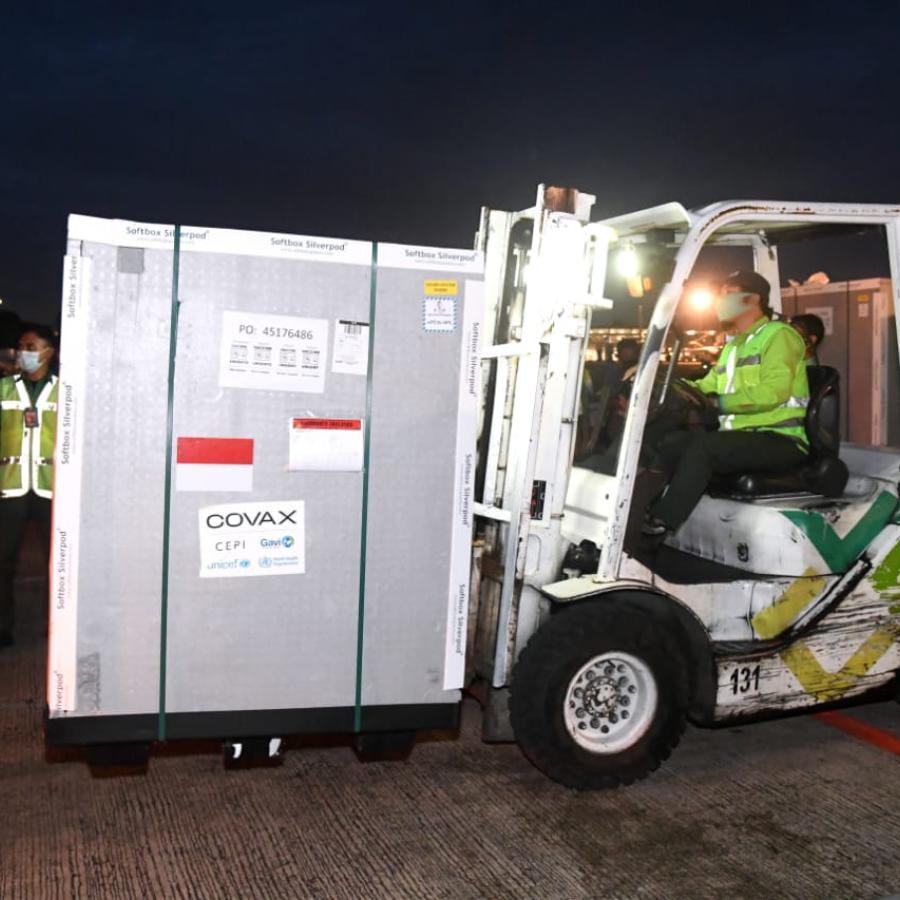
The first batch of COVID‑19 vaccines from the COVAX Facility that arrived in Indonesia is the AstraZeneca vaccine that was produced in South Korea and shipped via AstraZeneca's hub in Amsterdam, Netherlands. As part of the Advance Market Commitment (AMC) to finance low and middle-income countries, the COVAX Facility will provide 11 704 800 vaccine doses to Indonesia at no cost. This quantity will contribute to Indonesia’s target of vaccinating 181 million people, prioritising health workers, frontline workers, older adults and vulnerable population.
Minister of Foreign Affairs of Indonesia and Gavi COVAX AMC co-chair Retno Marsudi and the Ministry of Health’s Interim Director General of Pharmaceuticals and Medical Devices drg. Arianti Anaya, MKM , WHO Representative Dr N. Paranietharan, and UNICEF Representative Debora Comini received the vaccines at Soekarno-Hatta International Airport. The Government of Indonesia will continue to lead the COVID‑19 vaccination rollout that has started on 13 January 2021.
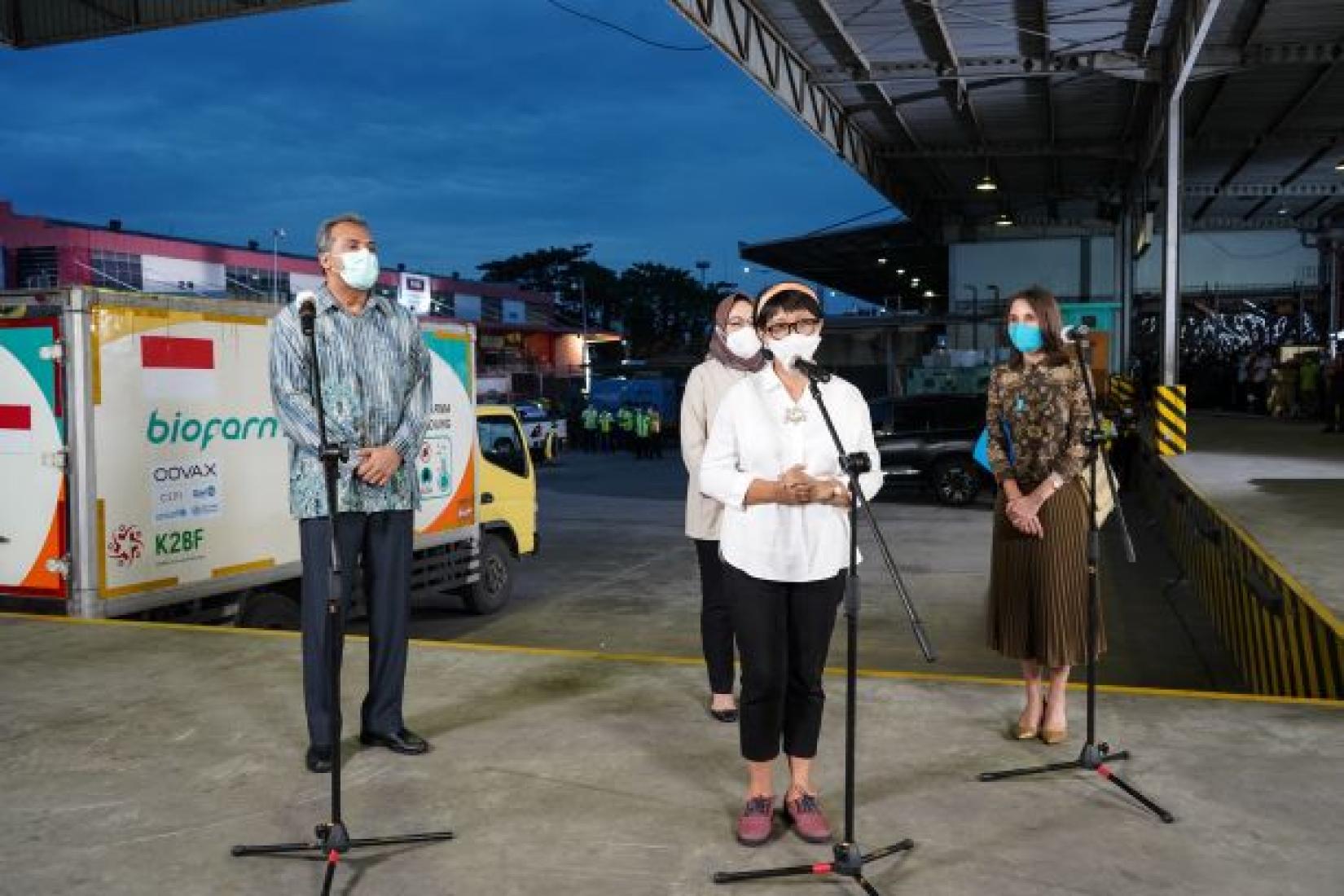
“The arrival of vaccines from the COVAX Facility results from collaboration between ministries in Indonesia and international organizations; donor countries; GAVI, the Vaccine Alliance; WHO; UNICEF; Coalition for Epidemic Preparedness Innovations (CEPI), and others. We convey our highest appreciation for the partnership. Indonesia has been supporting vaccine equity for all countries, this principle must continue to be voiced and supported,” said Minister of Foreign Affairs of the Republic of Indonesia and Gavi COVAX AMC co-chair Retno Marsudi.
A strong collaboration at the global and national level has led to this critical milestone in the fight against COVID‑19 and the largest vaccine procurement and supply operation in history. The WHO launched the Access to COVID-19 Tools (ACT) Accelerator, a global collaboration to accelerate development, production, and equitable access to COVID-19 diagnostics, therapeutics, and vaccines. COVAX, the vaccines pillar of the ACT Accelerator, is co-led by the Coalition for Epidemic Preparedness Innovations (CEPI), Gavi, the Vaccine Alliance (Gavi) and WHO – working in partnership with UNICEF as key implementing partner, as well as civil society organisations, vaccine manufacturers, the World Bank, and others.
In Indonesia, WHO, UNICEF and other partners are providing technical assistance to the Ministry of Health on all aspects of COVID‑19 vaccination. More than 23 000 health care workers have been trained on COVID‑19 vaccination, a vaccine introduction road map have been developed, and vaccine safety surveillance continues to be strengthened to monitor and respond to any potential adverse events.
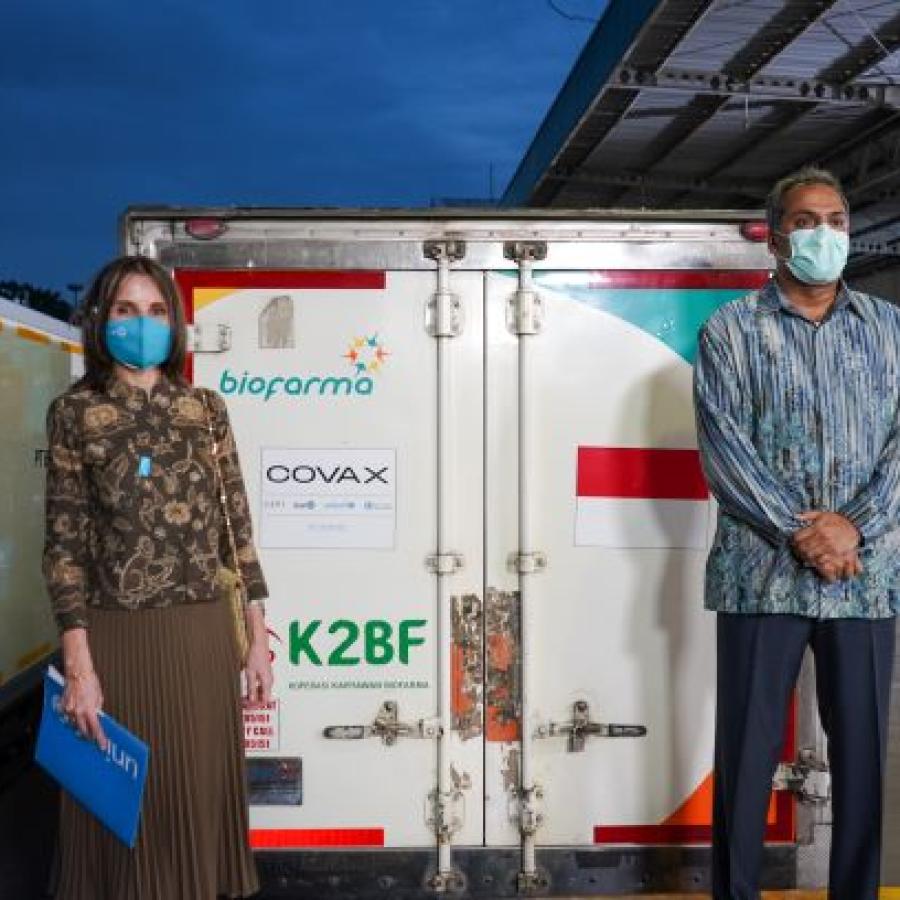
“Vaccines alone will not end the pandemic, but with every new round of vaccination, a return to normalcy becomes a stronger reality, as we face better access to health, education and other essential services,” said UNICEF Representative Debora Comini.
WHO Representative Dr N Paranietharan emphasized that vaccination is a critical tool to complement, not replace, public health and social measures as well as testing, tracing and treatment to help end the pandemic.
“The arrival of vaccines allocated by COVAX Facility demonstrates global solidarity and reignites hope in ending the pandemic. I congratulate Indonesia as one of the co-chairs of the COVAX Facility AMC group for this milestone achievement. The time for health equity is now. We need to ensure that these vaccines reach everyone that needs them and no one is left behind,” said WHO Representative Dr N. Paranietharan. “As the vaccination is rolled out, countries must not let the guard down. We must continue to implement public health measures to reduce the spread of the virus; such as physical distancing, wearing a mask, washing hands with soap, avoiding crowds and closed spaces, even when we have been vaccinated."
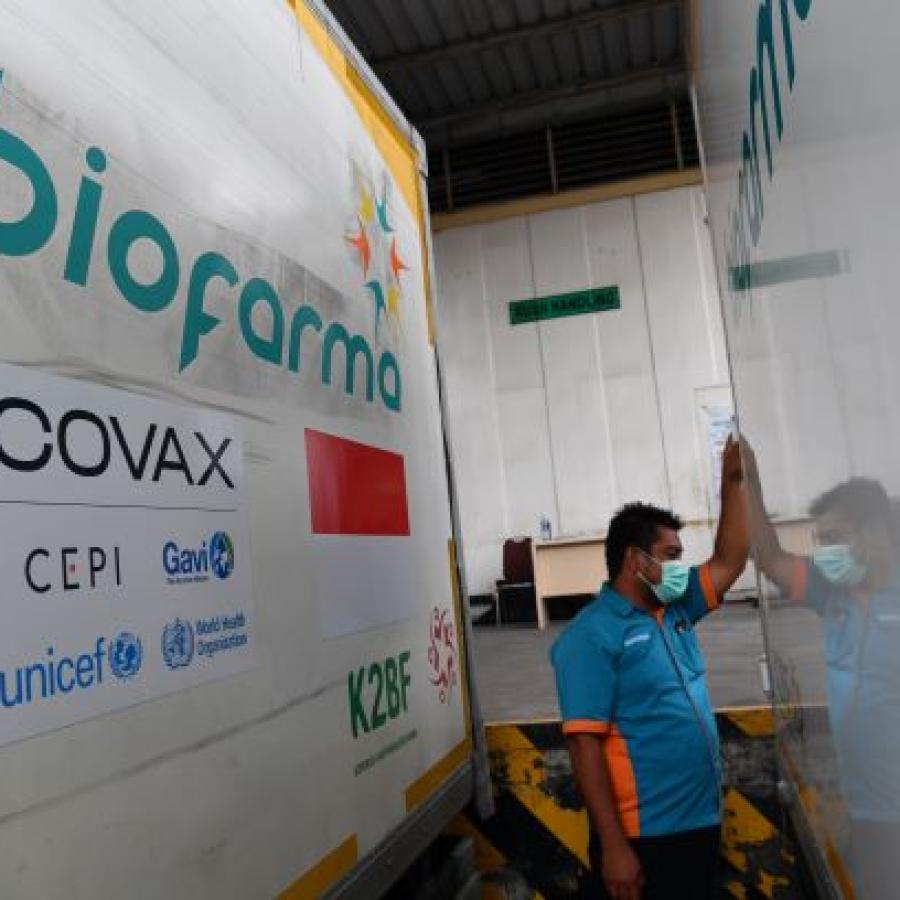
The COVAX Facility aims to procure two billion doses by the end of 2021 to protect frontline health care and social workers, as well as high risk and vulnerable people, including at least 1.3 billion donor-funded doses to the 92 lower-income COVAX Facility participants supported by the Gavi COVAX AMC.
This article was published in WHO Indonesia Website with the title "Indonesia received the first batch of COVID-19 vaccines from the COVAX Facility".

